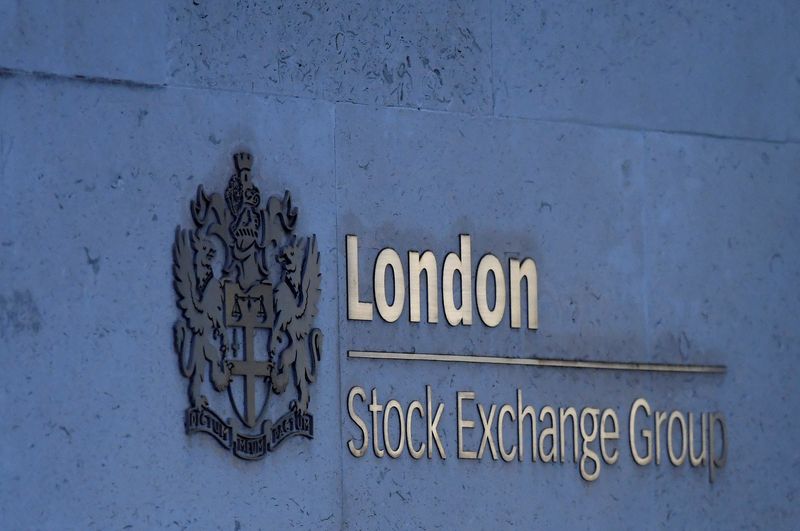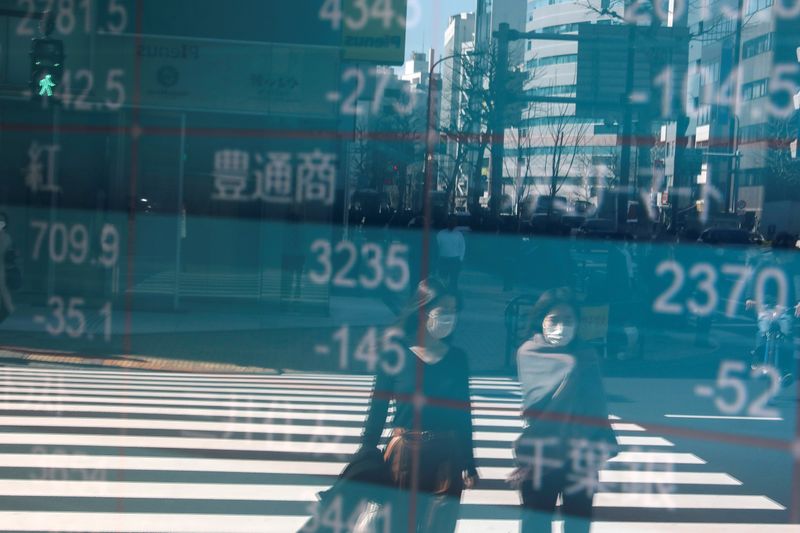By Marc Jones
LONDON (Reuters) - World stocks headed for their best month on record on Thursday, as encouraging early results from a COVID-19 treatment trial and expectations of more European Central Bank (ECB) stimulus later in the day helped ease the pain of February and March.
Europe saw a cautious start with oil firm Shell (LON:RDSa)'s first dividend cut in 80 years, a record drop in French first quarter GDP and surge in German unemployment all giving traders an excuse for some pre-ECB profit taking.
Not that it mattered. Easing coronavirus worries mean the STOXX 600 (STOXX) is up more than 25% over the last six weeks. April will be Europe's best month since 2009 and for MSCI (NYSE:MSCI)'s World Index, it could be best since it started in the late 1980s.
"We have gone back to a turbo-charged version of the great financial crisis," said Simon Fennell, a portfolio manager in William Blair's global equity team, referring to how markets have surged on mass central bank and government stimulus.
"Today we will also see if the ECB is going to go to 1 trillion or beyond with its PEPP programme," he added, a reference to the central bank's beefed-up bond buying scheme.
A 1.4% rise in MSCI's broadest index of Asia-Pacific shares, excluding Japan, (MIAPJ0000PUS) kept it tracking towards a weekly gain of more than 5%, its best in three weeks.
Optimism was also driven by positive partial results from a trial of Gilead's (O:GILD) antiviral drug remdesivir, which suggested it could help speed recovery from COVID-19, the respiratory disease caused by the new coronavirus.
Japan's Nikkei (N225) jumped 2.8% to a seven-week high and Australia's ASX 200 (AXJO) rose 2.7%, with the mood further supported by South Korea reporting no new domestic coronavirus cases for the first time since its Feb. 29 peak.
More caution was evident in other asset classes, with the U.S. dollar steady against most of the other major currencies and German Bund yields - which move inverse to price - dipping to a one-month low ahead of the expected ECB moves.
"It's a hope-based rally rather than an evidence-based rally," said Anthony Doyle, cross-asset specialist at fund manager Fidelity International in Sydney.
There were still worries about a second wave of infections, he said, adding that huge piles of cash waiting to go back into the markets suggest investor confidence remained subdued.
BOND MARKET NOT BUYING IT
Markets have been excited by the prospect of a COVID-19 treatment because it may help economies emerge from lockdowns.
Partial results from the 1,063-patient U.S. government trial of Gilead's remdesivir were hailed as "highly significant" by the top U.S. infectious disease official, Anthony Fauci.
They showed hospitalised COVID-19 patients given the drug recovered in 11 days, compared with 15 days for patients given a placebo, and a slightly lower death rate.
But since treatment hopes don't seem to take into account regulatory and distribution difficulties, should a treatment be found, currency and bond markets were more circumspect.
"Any positive medical development is helpful," said Westpac FX analyst Sean Callow.
"But no-one should be counting on a major breakthrough - the key for markets is control of the spread of the virus."
The yield on benchmark U.S. 10-year Treasuries (US10YT=RR) stayed parked at 0.6170%, after the U.S. Federal Reserve left interest rates near zero and gave no indication of lifting them any time soon.
The dollar held its ground against the resurgent Australian dollar

Gold
(Additional Reporting by Tom Westbrook in Singapore and Swati Pandey in Sydney; Editing by Alex Richardson)
